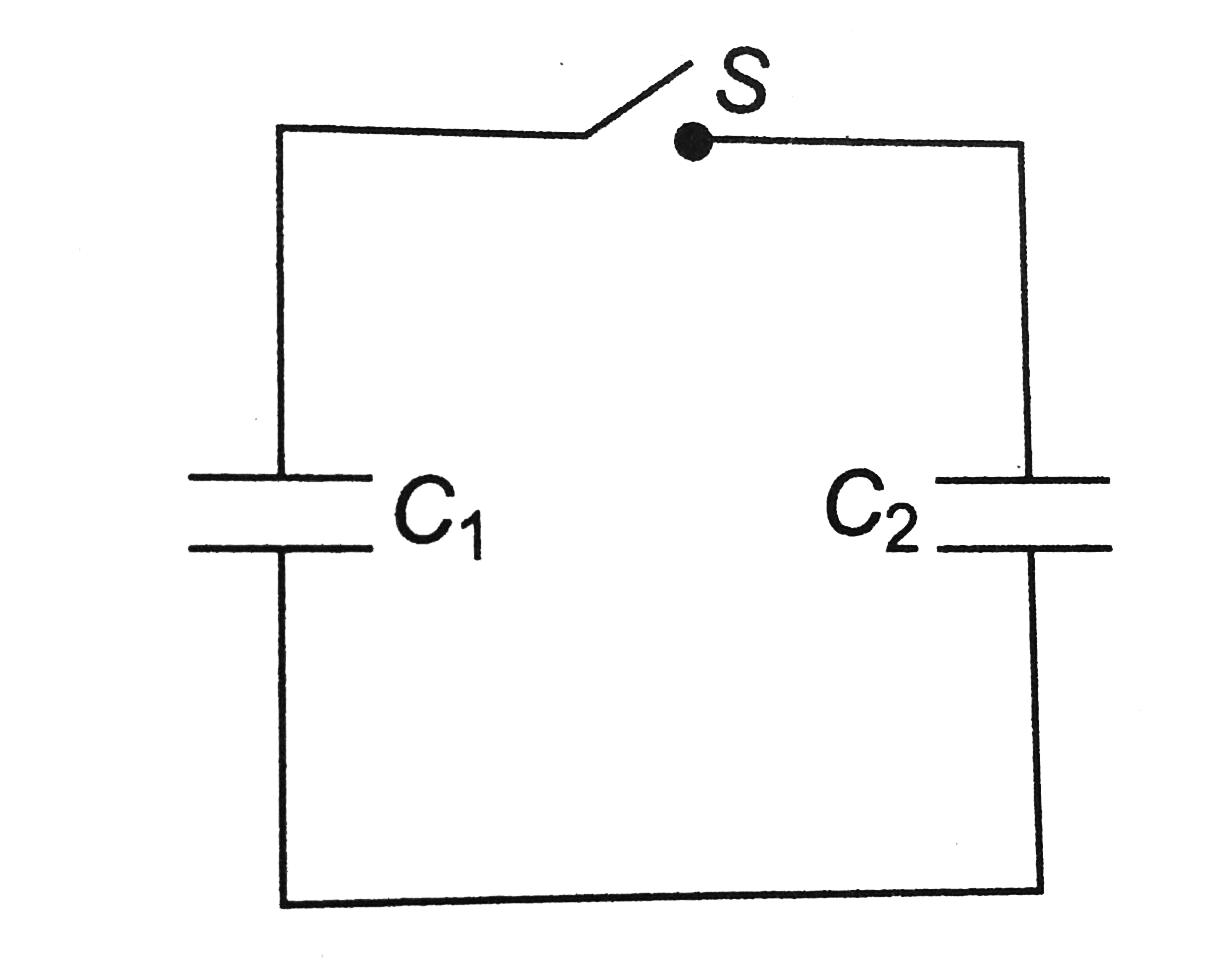A capacitor is charged to potential V1. The power supply id disconnected and capacitor is connected in parallel to another uncharged capacitor. Calculate common potential of the combination of capacitors. Show that total energy of the combination is less than sum of energies stored in them before they are connected.
Let C1andC2 be the capacitances of the two capacitors and V be their common potential .
As V=total Chargetotal C apacity=q1+q2C1+C2
V=C1V1+C2V2C1+C2=C1V1C1+C2(∵V2=0)
Initial energy stored stored, U1=12C1V21
Final energy after connection, U2=12(C1+C2)V2
U2=12(C1+C2)(C1V1)2(C1+C2)2
=12C21V21C1+C2=U1C1C1+C2
Clearly, U2<U1.
which was to be proved.
Similar Questions
A 400 pF capacitor, charged by a 100 volt d.c supply is disconnected from the supply and connected to another uncharged 400 pF capacitor. Calculate the loss of energy.
View SolutionA 5μF capacitor is charged to a potential of 100 V and then disconnected from the power supply. Now it is connected in parallel to another capacitor of 20μF. The common potential of the capacitors will be _____________ .
View Solution
Knowledge Check
A capacitor of capacitance of 2μF is charged to a potential difference of 200V, after disconnecting from the battery, it is connected in parallel with another uncharged capacitor. The final common potential is 20V then the capacitance of second capacitor is :
A2μFB4μFC18μFD16μFA 10μF capacitor is charged to a potential difference of 50V and is connected to another uncharged capacitor in parallel. Now the common potential difference becomes 20 volt. The capacitance of second capacitor is
A10μFB20μFC30μFD15μFA capacitor or capacitance C1 is charge to a potential V and then connected in parallel to an uncharged capacitor of capacitance C2. The fianl potential difference across each capacitor will be
AC1VC1+C2BC2VC1+C2C1+C2C1D1−C2C1
A 4μF capacitor is connected to another 8μF capacitor. The combination is charged at 300V. Calculate
(i) total charge on the combination
(ii). Total energy stored in the combination.
View SolutionA 80μF capacitor is charged by a 50V battery. The capacitor is disconnected from the battery and then connected across another uncharged 320μF capacitor. Calculate the charge on the second capacitor.
View SolutionA 100μF capacitor is charged to 100V. After the charging, battery is disconnected. The capacitor is then connected in parallel to another capacitor. The final voltage is 20V. Calculate cap the capacity of second capacitor.
View SolutionA μF capacitor C1 is charged to V0=120V. The charging battery is then removed and the capacitor is connected in parallel to an uncharged +4μF capacitor C2.

(a) what is the potential difference V across the combination?
(b) what is the stored energy before and after the switch S is closed?
View SolutionA 600pF capacitor is charged by a 200V supply. It is then disconnected from the supply and is connected to another uncharged 600pF capacitor. What is the common potential in V and energy lost in J after reconnection?
View Solution